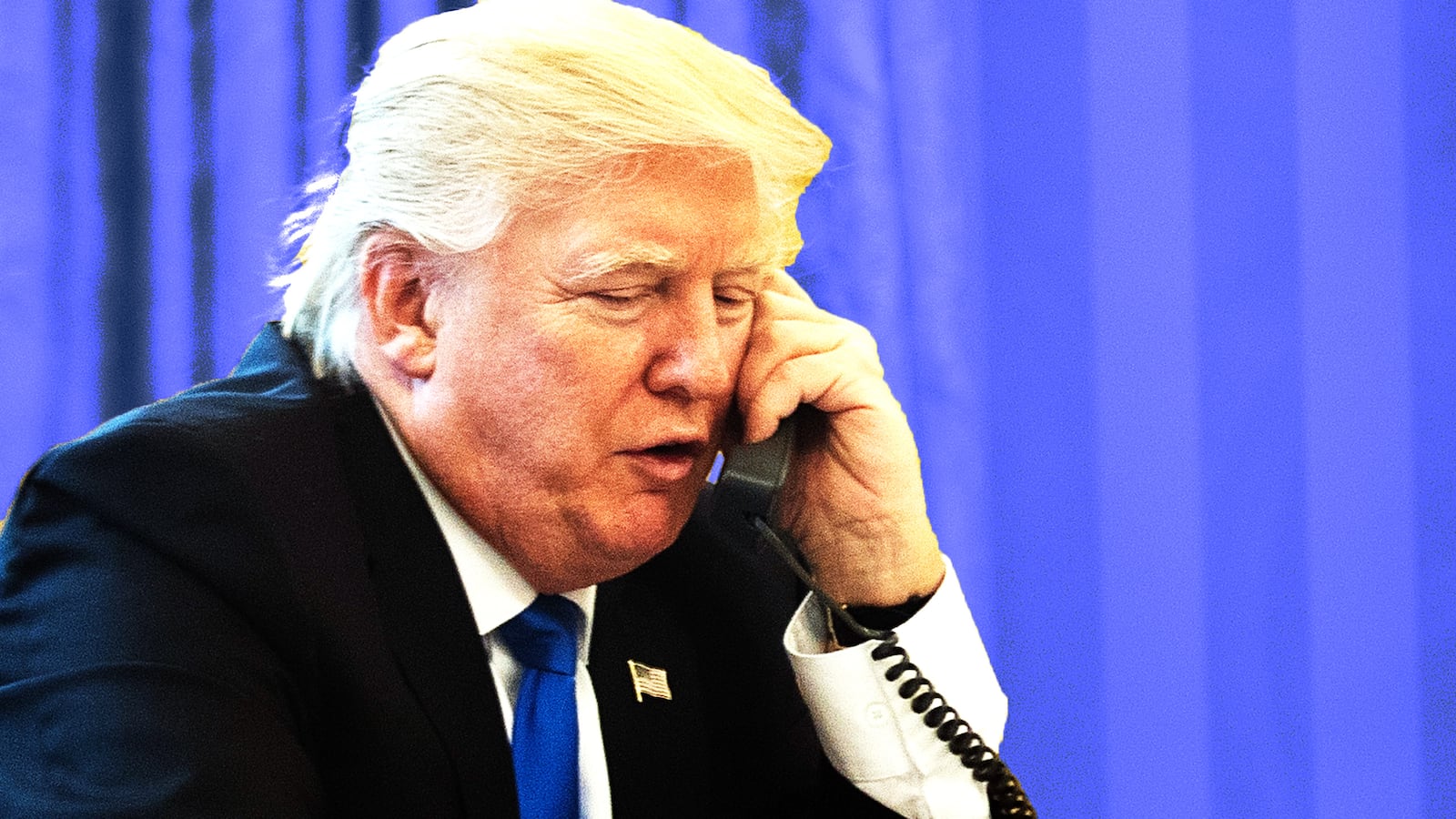Every man who has sat in the Oval Office has felt the short, sharp shock when an ordinary day in the highest office in the land shifts from pomp and ceremony to urgent briefings, immediate choices, crucial decisions where lives are on the line. It’s not something that may happen to a president. It’s something that will happen.
John Kennedy learning of Russian nuclear weapons in Cuba. Jimmy Carter as news of 44 American hostages taken by the Iranian regime filtered in. George H.W. Bush as Iraq invaded Kuwait and as the collapse of Soviet Communism shook the boundaries and security of the world. George W. Bush on that fateful September day. Barack Obama as a spring morning in Boston and a night of dancing in Orlando turned into bloodbaths driven by Islamist terror.
Natural disasters strike. Financial markets crash. Terrorists hit without warning, leaving Americans dead in their wake. The predators of the world, though fearful of the might our nation can almost uniquely deploy, nip around the edges of our influence, striking asymmetric blows. Crises cost lives, and challenge our interests and values in a heartbeat. The 3 a.m. phone call, that hoary trope of campaigns, always comes.
Crisis tests the mental acuity and character of presidents. It demands a degree of focus and reveals character like nothing else. The ability to navigate crisis isn’t merely intellectual—Carter was whip-smart, and terrible at confronting crises—it’s also a kind of Wolfean Right Stuff; “Perhaps because it could not be talked about, the subject began to take on superstitious and even mystical outlines. A man either had it or he didn’t! There was no such thing as having most of it. Moreover, it could blow at any seam.”
When they have it, they have it. Some presidents meet crisis with resolve and discipline. Some have a team of serious, capable advisers who bring knowledge, focus, and insight into complex regions and actors. Some have guts. Some have intellectual horsepower and mental bandwidth. Some understand people and power.
Some presidents show immediate command in some crises and fail in others. From the confident rallying cry of “I hear you” on a firetruck in the ruins of the World Trade Center to “Heckuva job, Brownie” shows two extremes of crisis management in one president.
What we know of Donald Trump is that he lacks all of these characteristics, and while some of his advisers have shining parts, he ignores those who offer him counsel on how to behave, govern, and lead as a president. The Scaramucci sideshow was one more example of how deeply unready Trump is for a real crisis and how at risk our nation is because the president is temperamentally (and, let’s be real, mentally) unfit to serve. Donald Trump the television character—decisive, worldly, smart, and always in control—is precisely the opposite of Donald Trump the man. The real Donald Trump is moody, needy, shallow, and impulsive.
From Russia to North Korea to Iran, Trump’s administration faces more potential foreign policy crises than he imagined. On the domestic front, the superficial economic news is more of the same as the last nine years of zero-cost Fed-sponsored liquidity continue to prop up the stock market. He’s not ready to face a day where he receives anything less than fulsome praise on Fox and Friends, much less a challenge to our safety or our sovereignty.
As a man of no fixed values and no political beliefs beyond “L’etat c’est Don,” every crisis Trump has faced to date has been of his own making. Those that will confront us abroad aren’t amenable to leadership via ragetweet. The way Trump governs himself when America isn’t under overt attack should sober you. The prospect of how he’ll respond when we are should terrify us all.
In one of America’s first foreign policy crises, President Thomas Jefferson elected not to pay the Barbary pirates tribute or ransom for American hostages, writing, “Why not begin a navy then and decide on war? We cannot begin in a better cause nor against a weaker foe.”
For the powers in this world hostile to American interests and values, the desire to act against a weak foe in the form of Donald Trump must be an intense temptation.






